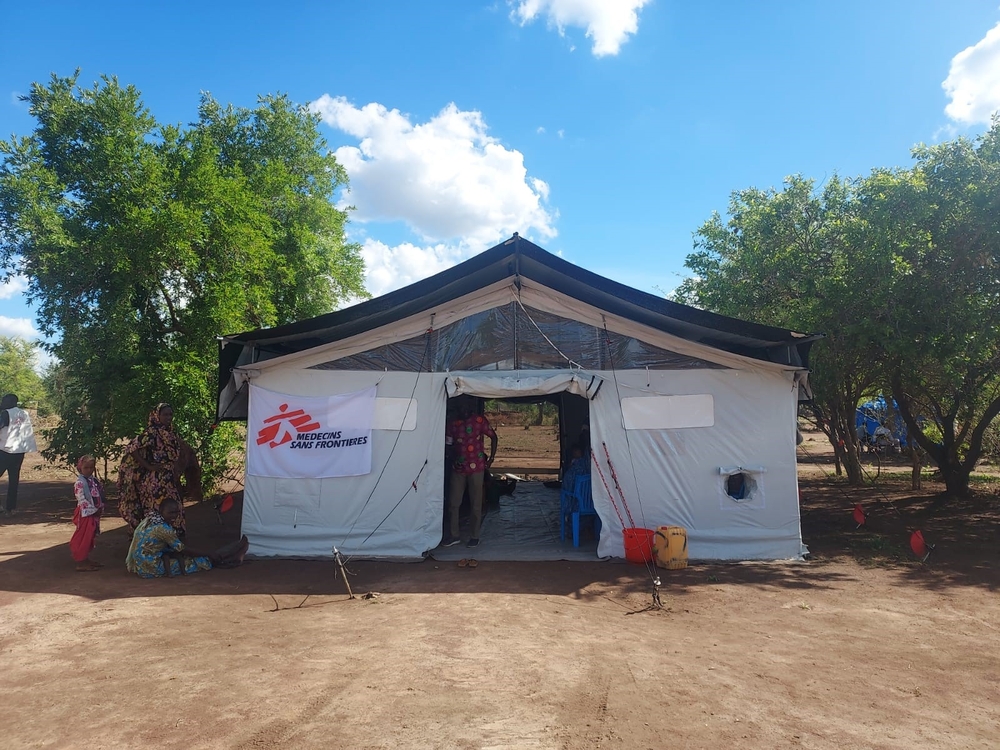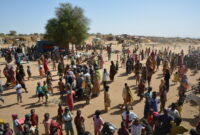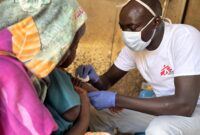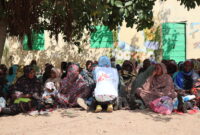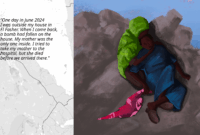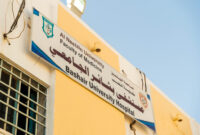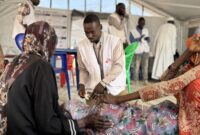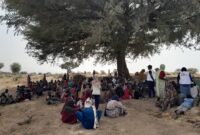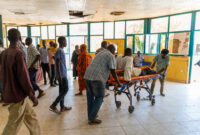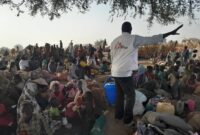Sudan: Obstructive bureaucracy and insecurity hampering humanitarian response
As the conflict between the Sudanese Armed Forces (SAF) and the Rapid Support Forces (RSF) enters its third month, rampant violence and huge health needs persist across Sudan, particularly in Khartoum and Darfur. Although Doctors Without Borders/Médecins Sans Frontières (MSF) is running medical projects, its ability to scale up activities is being impeded by extensive and obstructive administrative and bureaucratic restrictions. If the situation persists, it will be impossible for MSF to provide the adequate medical and humanitarian response that people desperately need.
“People are dying while the country’s health system buckles under the weight of overwhelming needs,” says Jean Nicolas Armstrong Dangelser, MSF Emergency Coordinator in Sudan. “By subjecting people to shocking levels of violence, or by restricting medical organisations from helping them, the warring parties in Sudan are showing a complete disregard for civilian lives.”
Since the outbreak of the conflict, MSF has expanded or reoriented pre-existing projects and launched new activities. In just five weeks MSF surgical teams working in the Bashair teaching hospital in south Khartoum treated 1,169 patients, over 900 had suffered violent trauma. Since the onset of the fighting, the MSF supported hospital in El Fasher, north Darfur, carried out over 600 surgeries for war wounded people, or women requiring emergency obstetric care. Among other activities, MSF provides paediatric, malnutrition and maternal health services, runs mobile clinics and provides medical and water and sanitation services to displaced people.
Despite working in 11 states, the scale of MSF’s activities in Sudan is in no way commensurate with the huge needs faced by the population.
MSF has strived to increase its activities but these attempts have been consistently hindered by both warring parties, despite their many public commitments to the facilitation of humanitarian assistance., including those formally set out in the Jeddah Declaration of Commitment to Protect the Civilians of Sudan.
One MSF team, including experienced emergency medical staff, was blocked from travelling from Port Sudan to areas with greater medical needs. Unable to travel, the team launched water and sanitation activities in camps for displaced people and trained Sudanese medical staff in responding to mass casualty events. These small scale, non-lifesaving activities, had far less impact than what could have been achieved had the team been able to reach areas with greater medical needs. Medics in the team didn’t treat a single patient.
The medical team leader, Dr Javid Abdelomoneim, a Sudanese-British doctor recently returned from Sudan, describes the team’s attempts to obtain permission to travel.
“Why, upon second, third, fourth, fifth, sixth and seventh daily requests and dialogues with humanitarian and intelligence authorities were our permits to travel back to Khartoum and River Nile states rejected? Weeks later my entire MSF team, amongst them medical, logistical and operational colleagues were still sitting in Port Sudan.”
Despite the clear and overwhelming needs of the population:
- Requests for permits to travel submitted on time and with requisite paperwork by MSF have been delayed, rejected, rescinded, or plainly not respected, all without clear reasons being given.
- Even when permits were issued, in some cases MSF staff and supplies have been turned back by security personnel at checkpoints, sometimes with staff harassed, threatened or detained.
Although it is unclear whether these actions are a deliberate attempt to restrict humanitarian assistance, the result for the population is the same: reduced access to healthcare at a time when it is most urgent.
The work of medical and humanitarian organisations is also being physically disrupted by both warring parties. MSF supplies have been confiscated, while armed groups have looted MSF facilities and beaten and violently threatened staff. MSF’s Sudanese staff in particular have faced traumatic threats during lootings, all while trying to provide medical care to their fellow Sudanese.
The conflict and widespread insecurity in Sudan is creating a desperate situation for the population with people affected by fighting, airstrikes, shelling, killings, sexual violence and criminality. Patients who fled west Darfur to Chad, where they were treated by MSF, described a dire situation in El Geneina, the state’s capital, with people shot and killed as they fled the violence in the city.
At the same time, the country’s health system is struggling to respond to the immense needs caused by the conflict, as well as health needs not directly related to the fighting. Health facilities lack sufficient staff and supplies and are barely functional in some areas. The violence makes it difficult for people to access healthcare, with many presenting to healthcare facilities late as it is too dangerous to travel.
